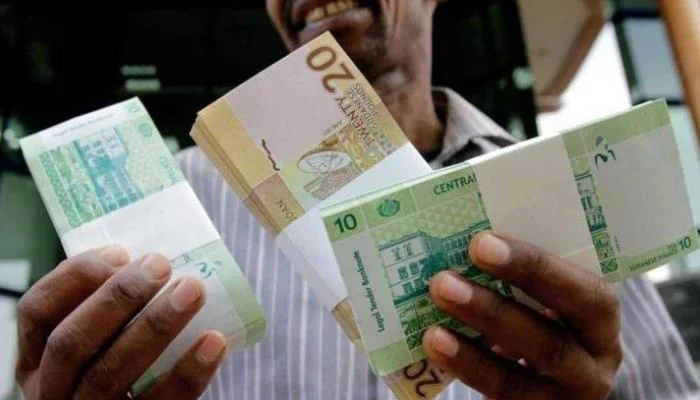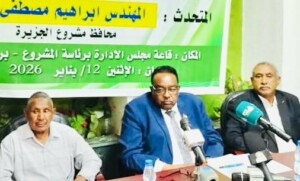Sudanese Pound declines further as Dollar exchange rates rise again

A man shows newly printed Sudanese banknotes of SDG10 and SDG20 (File photo)
The Sudanese Pound (SDG) once again faced a significant depreciation against foreign currencies this week. Exchange rates for the US Dollar surged, with reports indicating prices exceeding SDG850 in the parallel market. A prominent economic analyst attributed the volatility in the foreign exchange market to the influence of brokers and speculators.
The Bank of Khartoum quoted SDG638 for the greenback yesterday, while Faisal Bank reported rates of SDG655.
In an interview with Radio Dabanga yesterday, economic analyst Kamal Karrar attributed the volatility in the foreign exchange market to the influence of brokers and speculators.
“Speculators capitalise on price fluctuations, purchasing currencies during declines and selling them when values rise”, the analyst explained. He further linked the devaluation to speculators’ attempts to drive up fuel and commodity prices.
Sudan’s General Intelligence Service (GIS) in end September accused the Rapid Support Forces (RSF) and members of the public of foreign currency speculation.
In late September, banking expert Mohamed Esmat attributed the sharp decline in the value of the Pound to the increasing demand for the dollar in pursuit of imports that require foreign currency.
Economist Haisam Fathi told Radio Dabanga earlier that month that the increase is mainly due to the growing number of Sudanese who plan to leave the country, especially after the government in Port Sudan announced the resumption of the issuance of passports.
Measures
Karrar further expressed skepticism about the efficacy of administrative measures taken by the Central Bank of Sudan (CBoS) to safeguard the Pound’s value, saying these measures alone cannot stabilise the economic situation or currency prices.
He also criticised the government’s lack of efforts in ensuring an adequate supply of foreign currencies, asserting that currency traders “maintain a firm grip on the market”.
In response to the Bank of Sudan’s announcement on resuming clearing operations, Karrar remains pessimistic. “This decision would have limited -if any- positive effects given the current challenges faced by the banking system.”
Downplaying the effectiveness of reducing transfer limits in banking applications to stabilise the Pound, Karrar suggested that speculators could easily find ways to circumvent this measure, “such as using other people’s accounts or opening multiple accounts across various banks”.











 and then
and then